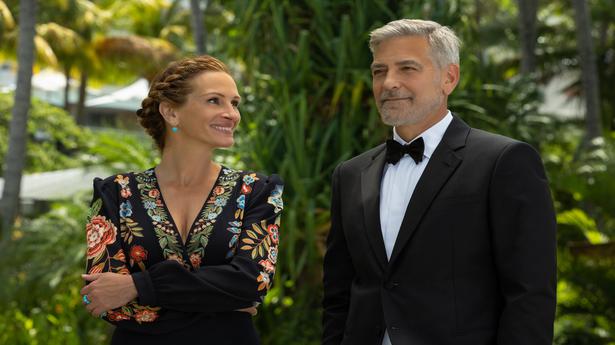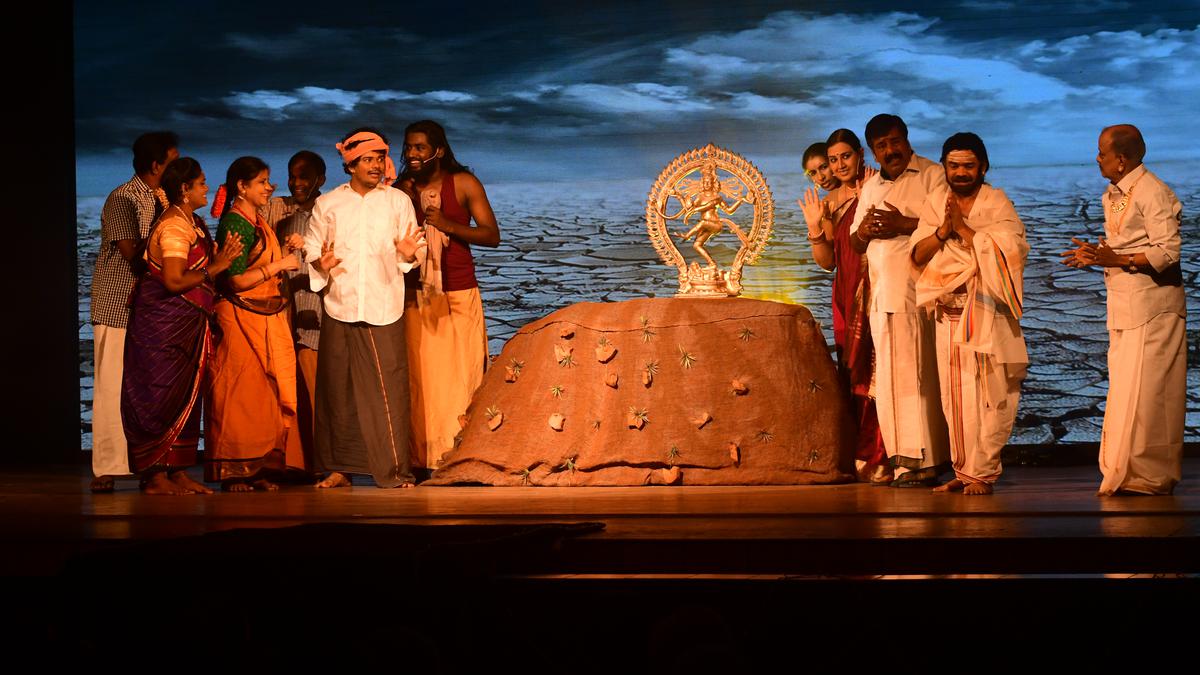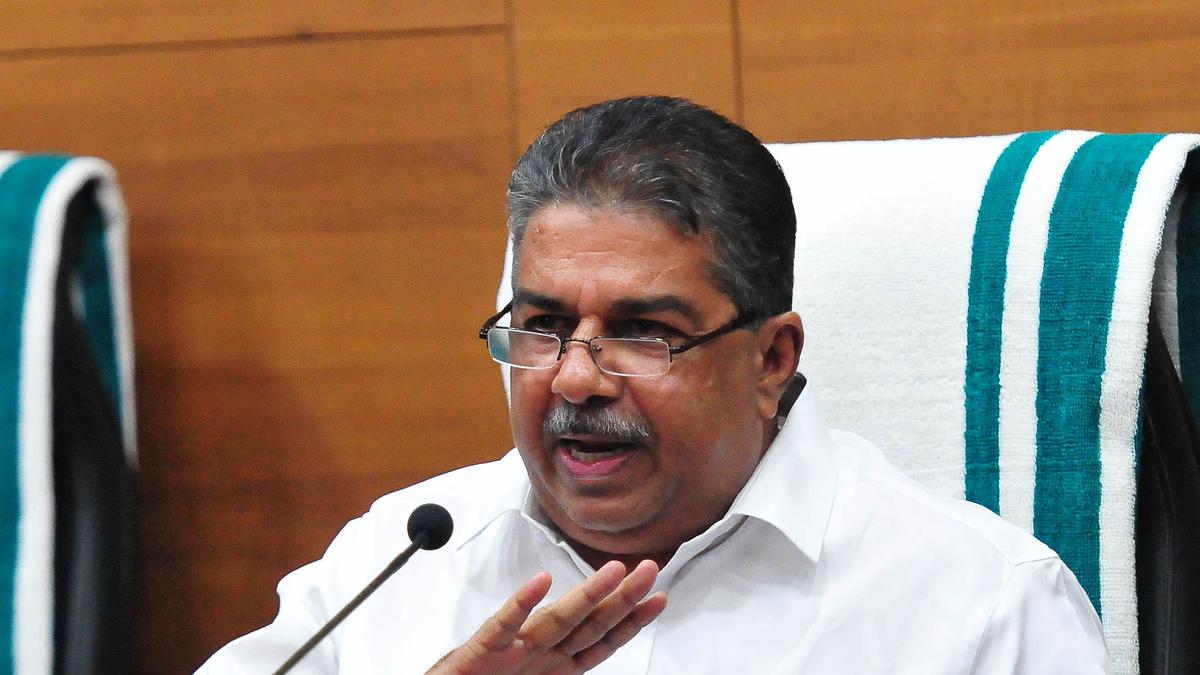Artists performing during the ‘Remembering Veenapani Festival – 2023’ at Adishakti theatre near Puducherry.
| Photo Credit: S.S. KUMAR
The enchanting desert grooves of Rajasthani musicians served a resounding finale to the ninth ‘Remembering Veenapani Festival’ hosted by Adishakti.
In a virtual repeat of last year’s outing, SAZ’s ‘Rang-E-Thar’ show unfolded in a hall filled to the brim as the musicians presented songs from the folk imagination of the desert region — the woman pining for a reunion with the spouse, the carnival atmosphere of a wedding household or simply a celebration of the caparisoned camel moving across the sands.
The three-piece troupe featuring Asin Khan on the Sindhi sarangi and main vocals, Zakir Khan on the khartal and backing vocals and Sadiq Khan on the dholak, have composed their own arrangements to the repertoire of traditional songs.
The men, whose music has carved out an expanding fan base in these parts, are hailed as among the finest practitioners in their fields. Asin Khan, in fact, is this year’s recipient of the Ustad Bismillah Khan Yuva Puraskar to go with last year’s Aga Khan Global Music Award.
The show was quite a master class on the staggering scale of music that can be created from the simplest of story threads — one old song was about a man making random excuses to his wife about why he was late.
“It’s the story of our lives,” joked Divya Bhatia, curator of the globally-renowned Jodhpur RIFF, while presenting the troupe and the genre.
Perhaps imperceptible to the audience was the manner in which Asin Khan was coaxing those haunting strains out of the 26-stringed Sindhi sarangi. The instrument, which is carved out of a single piece of wood, was being played with a cuticle, rather than the tips of the finger.
There were quite a few samples from the long line of traditional Rajasthani songs about yearning and separation — a recurring theme in folk poetry and lyrics as men in the region often move out in search of work.
One such was ‘Lal Vardi’ about a man who leaves and enlists in the British Army returning home in military fatigues, but with a delightful twist — his wife insists that to be accepted back, he has to get rid of the British uniform. “It makes for a strange kind of protest song,” as Bhatia remarked.
On the other end of the spectrum was the much-reprised Thar folk song ‘Kesariya Balam’ where the woman is so eager for a reunion with the husband returning from the battlefield that she is ready to take him in as he is, with a mud-covered and blood-stained attire.
One of the song choices was about a wife’s romantic request to her man to leave behind his scarf for her to cuddle up to in his absence, and he completely forgetting all about it as he goes away, while another was about a lady asking a migratory bird if she can ride on its back to join her far-away husband from whom she hasn’t heard in a long while.
As Bhatia pointed out, the sub-texts of many of these traditional songs, performed by the Manganiar and Langa communities, chronicled happenings in nature and history. The Langa community of Asin Khan, for instance, were genealogists who were also the performers for these communities.
If the wedding song ‘Mehndi’ was a sign of a tweaking of repertoire to cater to patrons of another city, the ‘gorbandh’ about the movement of caparisoned camels was quintessentially Thar.
In between the music, dropped an anecdote about the dholak played by Sadiq Khan not being made in Rajasthan, but rather in Kochi. Apparently, the dholak Saqid was playing in an edition of the Kochi Biennale broke and a replacement that was sourced locally, continues as his concert choice.







